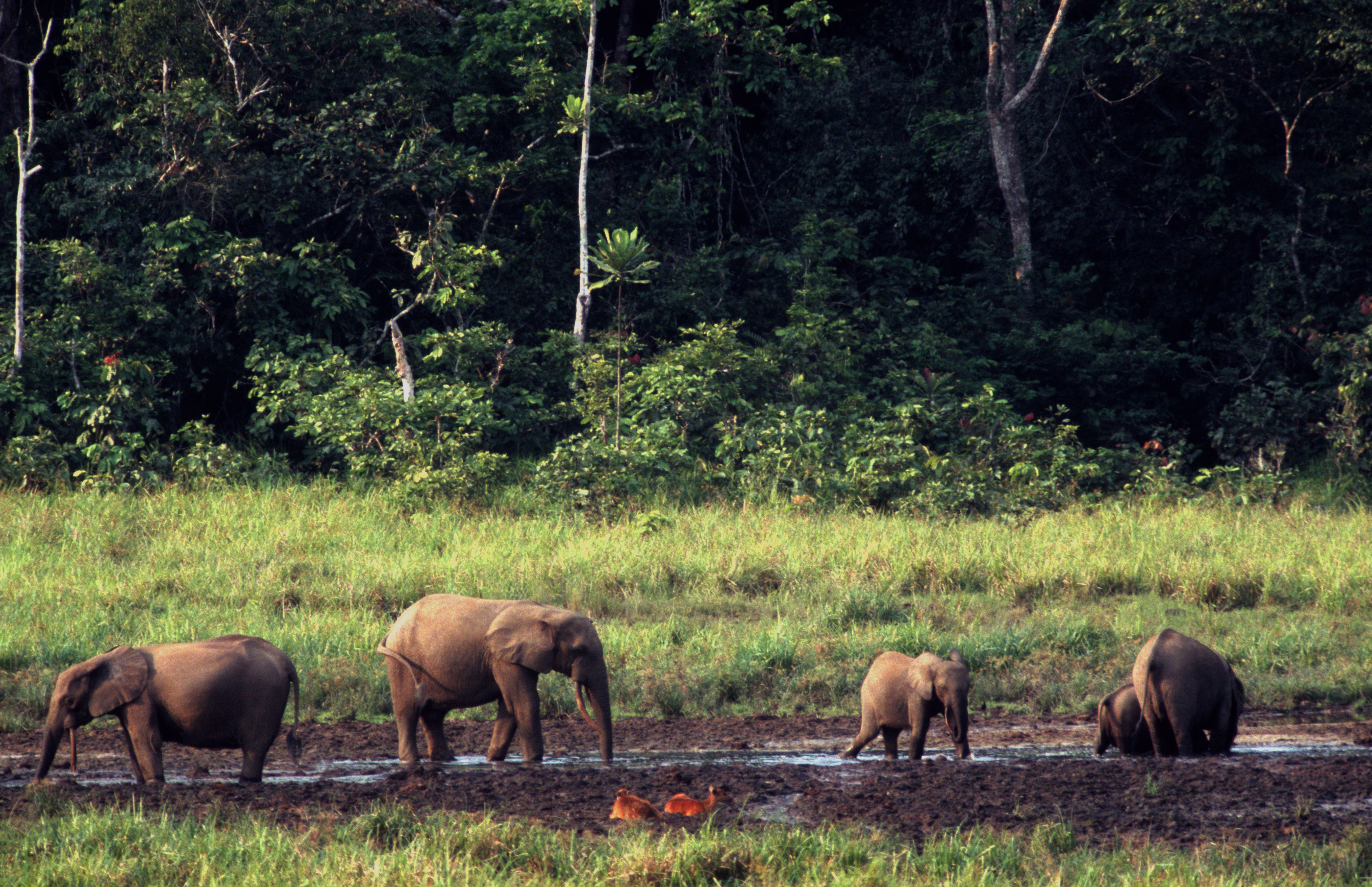New efforts to protect African forest elephants in Gabon for nature and climate
Measures from boosting ecotourism to electric fences to protect people’s crops are being used to help the critically endangered species.

Critically endangered forest elephants play a key role in conserving rainforests that are crucial wildlife habitats and carbon stores, experts in the animals’ stronghold say.
Officials in Gabon, central Africa, are implementing measures to try to protect the elephants, other wildlife such as gorillas and chimps, and the carbon-rich Congo Basin rainforest.
These range from protected areas and sustainable forestry to boosting ecotourism and installing electric fences to keep them away from crops – and conflict with humans.
A survey conducted by Gabon’s National Parks Agency (ANPN) and Wildlife Conservation released last year estimated there were 95,000 African forest elephants in Gabon.
If the elephant disappears, the forest will disappear
That is much higher than previously thought and makes it the stronghold for the species, which has suffered severe declines across its central African range, largely due to poaching for ivory.
The elephants are also threatened by habitat loss from deforestation and conversion of land for crops for a growing population.
It is estimated 60-70% of the world’s African forest elephants, a different species from the continent’s savannah elephants, live in Gabon, where they are found across 90% of the country, the research found.
Omer Ntougou, from the ANPN, said the elephants, along with gorillas and chimps, are the most important animals for protecting the habitat as they eat fruit and spread the seeds for new trees in their dung as they move through the rainforest.
He described elephants as “the first planter of the forest”, and said: “If the elephant disappears, the forest will disappear.
“It’s very important for biodiversity, we’re explaining to local people that if you kill elephants, you will kill the forest 20 or 30 years or a century later.”
He said the forest, which covers 88% of Gabon, is important for storing carbon, as well as for providing resources such as timber and traditional medicines.
The Gabon government has implemented laws on sustainable forestry and says it has achieved near zero deforestation, in sharp contrast to some other countries in the Congo Basin.
But entering the forest with machinery and even taking out just two mature trees per hectare has an impact on wildlife, so officials say there is also a need for conservation areas for nature.
The country’s 13 national parks form part of protected areas covering 22% of the country’s land, with plans to increase that to 30% by 2030.
In national parks such as Loango, a park made up of forest, savannah, beaches, lagoons and mangroves, there are efforts to boost ecotourism – focused on seeing the forest elephants and other key species such as gorilla trekking.
This can provide money and jobs to local people, so they benefit from conservation rather than killing wildlife.
And outside protected areas, efforts are also being made to try to reduce the conflict between rural farmers and elephants.
Using experience from Kenya on installing electric fences to dissuade elephants from getting into an area, Gabon officials have implemented 16 of the “Rolls-Royce” of such fences: 1.5m-high fences protecting 100 hectares (250 acres) of land.
But much of Gabon’s agriculture revolves around small-scale family farms where land is cleared, farmed and then moved after a few years, so UK Kenya-based charity Space for Giants is implementing a lower spec alternative.
These are single-wire fences using existing trees and intermediate posts which each protect just one hectare (2.5 acres) of land, are powered by solar panels and batteries, and which can be moved when the farmer moves on.
Eric Chehoski, country director for Space for Giants Gabon, said installing these fences, which cost close to 2,000 US dollars each, can be an immediate solution to the problem.
The charity is putting up 80 trial fences over the next few months to gather data on whether they work and farmers maintain them, and wants to roll out 1,000 fences a year nationally over the next two years.
Mr Chehoski said elephants learn to find a way through the fences, so they would be part of a wider approach by the government which could also involve developing an effective compensation system and problem animal control.
“Elephants are here, and the government has made a very commendable commitment to viewing that as a natural resource, but that needs to be translated into something that’s tangible to the population, or it’s fundamentally meaningless to the citizens of the country,” he said.
We must ensure that local and indigenous people are at the heart of conservation work
WWF’s African forest elephant co-ordinator Dr Thomas Breuer said the species in Gabon benefited from better protected habitat, less deforestation and because the country is less densely populated.
Poaching is lower in Gabon, but still exists, particularly close to the border with Cameroon and Congo, he said.
Securing the future for forest elephants requires a combination of protected areas, effective monitoring, and robust law enforcement, as well as efforts to halt the ivory trade.
“We must ensure that local and indigenous people are at the heart of conservation work, with a continued focus on helping them to coexist with elephants, particularly outside protected areas,” he said.
“This will be more successful if we recognise the considerable value that forest elephants bring to the ecosystem by increasing biodiversity as they disperse seeds and nutrients, helping to lock in carbon.”
Bookmark popover
Removed from bookmarks